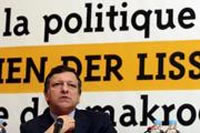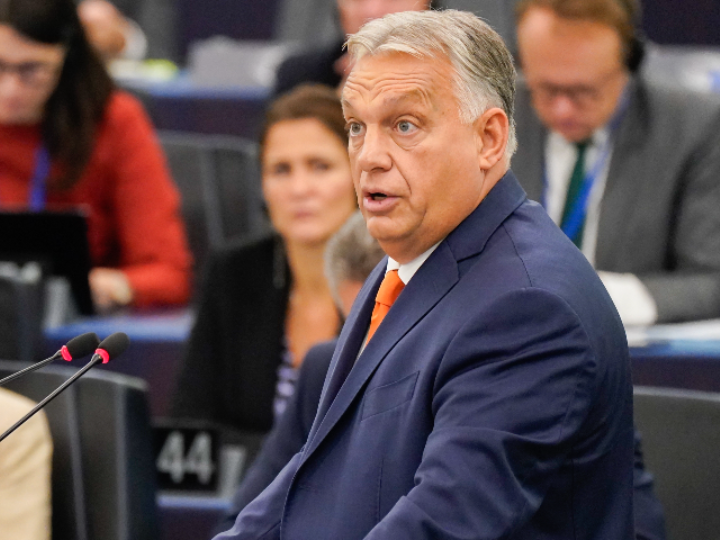European Commission President Josι Manuel Barroso has made a passionate plea to the citizens of Europe for their help in pushing economic reform and boosting jobs and growth in the Union.
Speaking at an event organised on Monday (14 March) by the Lisbon Council - a Brussels-based pro-reform think tank - Mr Barroso said, "the established interest groups have all got important contributions to make and they have made them".
"But where are the young entrepreneurs? The General public? The Risk-takers? Consumers? SMEs [small and medium-sized enterprises]? Innovators? They need to mobilise if resistance to change is to be overcome".
Mr Barroso was speaking just a week before a major summit of EU leaders at which the member states will be urged to create more "ownership" of the EU's economic goals and better explain them to the people.
And, piercing through the gloom that usually surrounds the EU's so-called Lisbon Agenda - its goal to boost Europe's flagging economy - Mr Barroso struck an upbeat note, saying, "I am an optimist by nature. I firmly believe that the potential among European citizens is there, just waiting to be unblocked".
He singled out the mobile phone market - "a sector where Europe leads the world" - and low-cost airlines as examples of Europeans beating the global competition.
But he also warned, "if Europe does not adapt, we will lose the global competition against some of our partners", mentioning India and China as potential rivals.
Wide ranging
Mr Barroso's speech was wide-ranging and touched on many of the pressing EU economic issues, such as the controversial directive on liberalising the services market and community patent.
Whilst admitting that the services directive was flawed in parts, he stressed that he would not be abandoning the country of origin principle - which would allow a company offering services in a third country to do so under its domestic rules.
And he emphasised the economic benefits of opening up the market for services - "real wages will rise, prices will fall, employment will go up".
Quoting an economic study, he said that "the total economic benefits to consumers and producers would rise by ... some 37 billion euro".
Not left or right
The Commission President rejected suggestions that what was holding up economic reform in the EU was a battle between the political left and the political right - the former refusing any changes to the European social model, the latter calling for an-enveloping focus on jobs and growth at the expense of social and environmental issues.
Instead, he said, "the true cleavage is not between left and right but between modernisers and reactionaries".
He also rejected claims that he had "watered down" the Lisbon objectives, which he has made the centrepiece of his Presidency.
"Let's not make it a decaffeinated strategy", he said, recalling that he could have abandoned the Lisbon Strategy and focused on other issues rather than making it the main policy of his term.




 By: N. Peter Kramer
By: N. Peter Kramer
